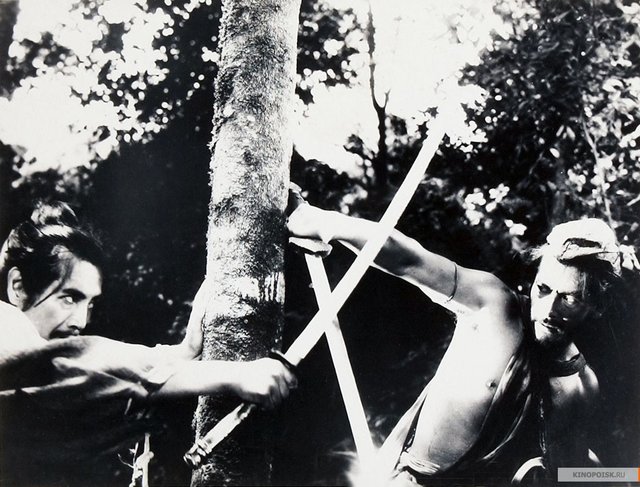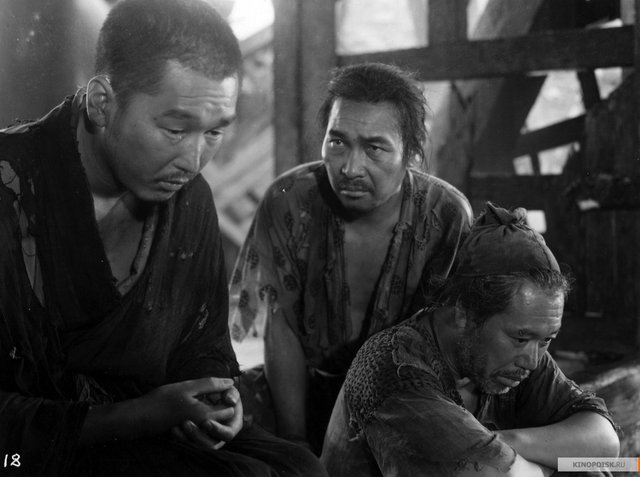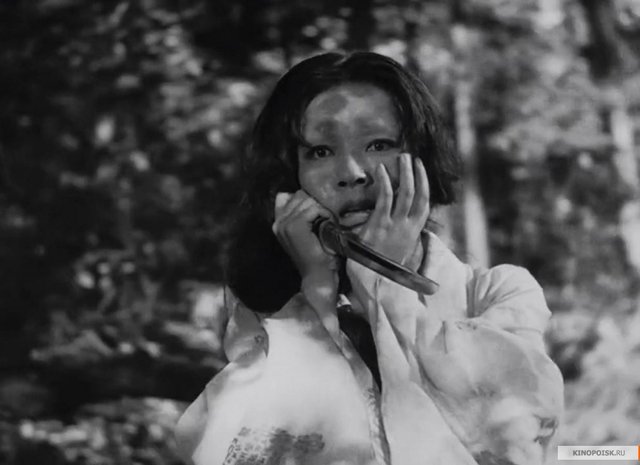Rope, hat and knife - "Rashômon" by Akira Kurosawa
Akira Kruosawa is an acknowledged genius and the most influential director in the history of cinema, not only Japanese, but also the world, and today I would like to stop on the film Rashômon, which Kurosawa loudly announced himself at the Venice Film Festival of 1951 and subsequently received the "Oscar" for the best film in a foreign language.
Under the ruins of the Rasemon, the lumberjack (Takashi Shimura), the monk (Minoru Chiaki) and the townspeople, are hidden from the rain destroyed during the war for the imperial throne. The first two went home after attending the hearing, where the case of the murder of the samurai Takeshiro (Masayuki Mori) and the rape of his wife Masako (Machiko Kyo) were being considered. The monk and the woodcutter are shocked by what they heard, and to pass the time retell the new acquaintance with four versions of what happened, heard at the trial.
In this case, each of the versions is strikingly different from the previous one. So to untangle this matter and make a fair verdict - it turns out to be a difficult task.
Delivered according to the stories of the classic Japanese literature Ryunoske Akutagawa, the story neatly balances between the historical drama and the detective story, and the unusual approach to presenting events for the 50s is more than innovative. It is not surprising that it was thanks to this film that European and American audiences discovered the world of Japanese cinema, while Japanese critics attacked Kurosawa with angry reviews, accusing him of being too free to interpret a famous work.
However, time has put everything in its place and even despite the fact that the age of the painting is close to 70 the film is still looking great, which certainly is due not only to Kurosawa, as the director, but also to his cameraman Kazuo Miyagawa. Kazuo is a real master of close-ups and until now critics' arguments about the significance of their duration in Rasemone have not abated. At the same time, the same critics in one voice do not cease to praise his work with light and his lofty symbolism, which manifests itself in almost every scene.
I reviewed Rasemon three or four times and was not surprised that Kurosawa's method of plotting became popular, and Rasemon's effect (the story of one story from several points of view) became the founder of the whole genre. This method was later successfully used by Quentin Tarantino and Guy Ritchie. Yes, and the recent "Dunkirk" by Christopher Nolan - nothing more than his most large-scale incarnation.
Sorry for possible errors - English is not my native language


